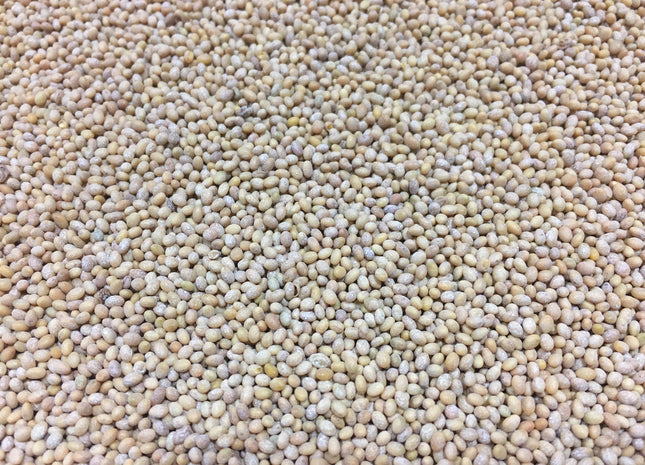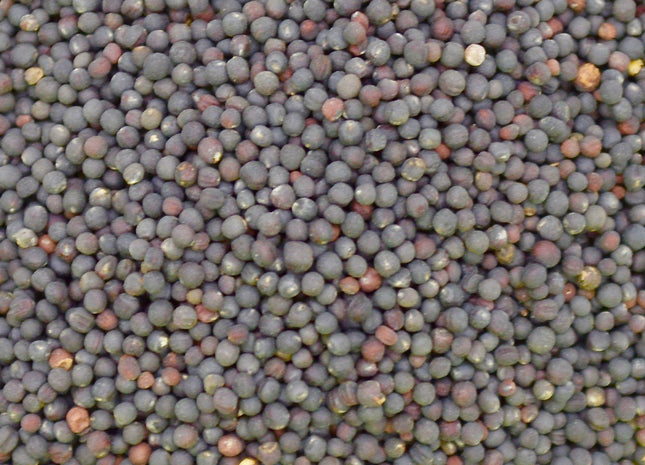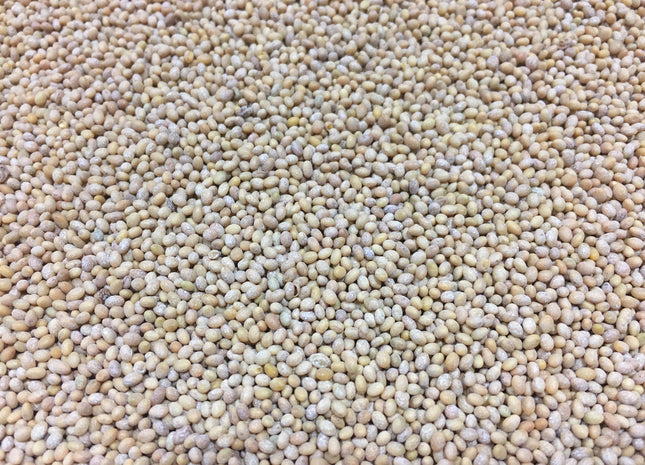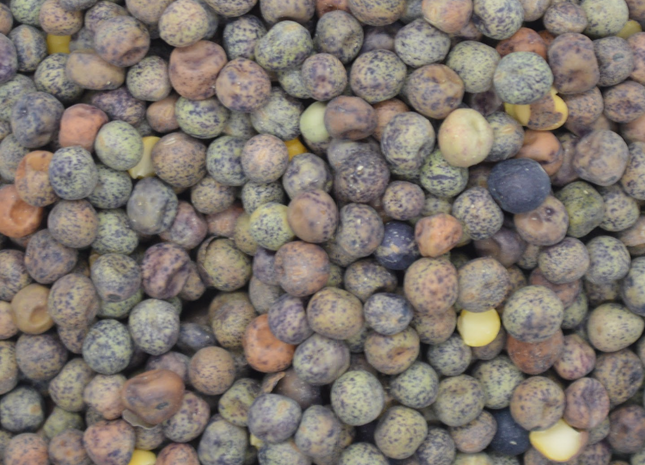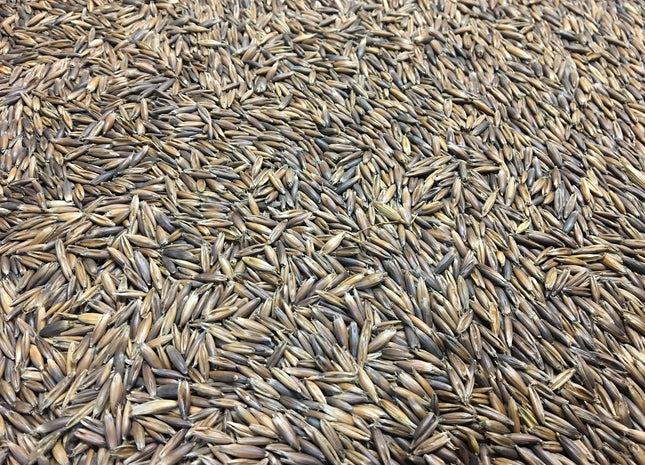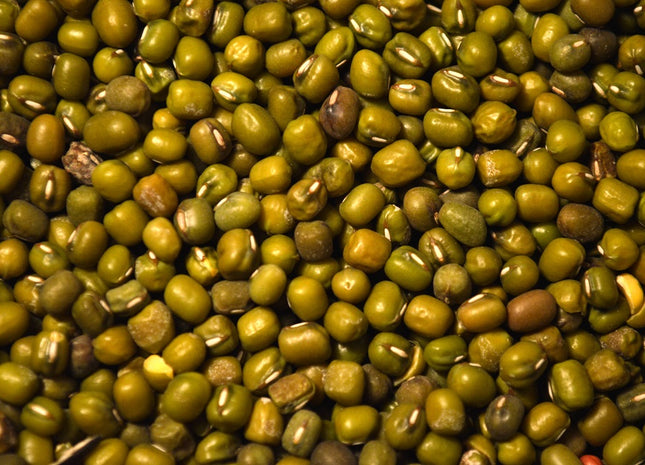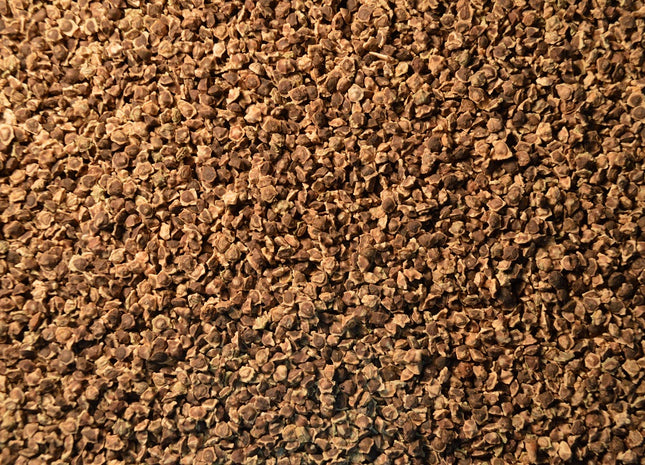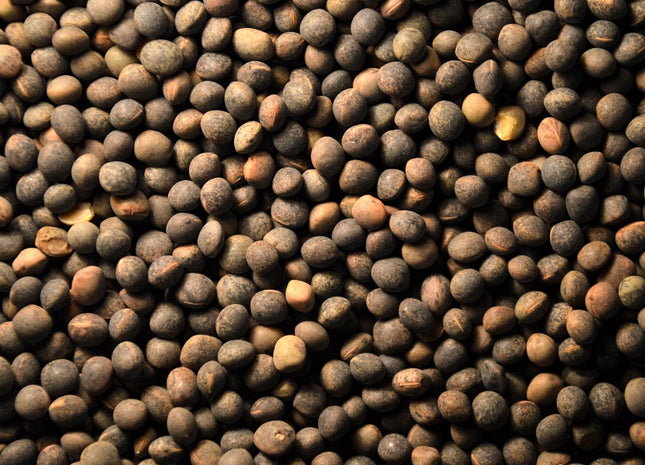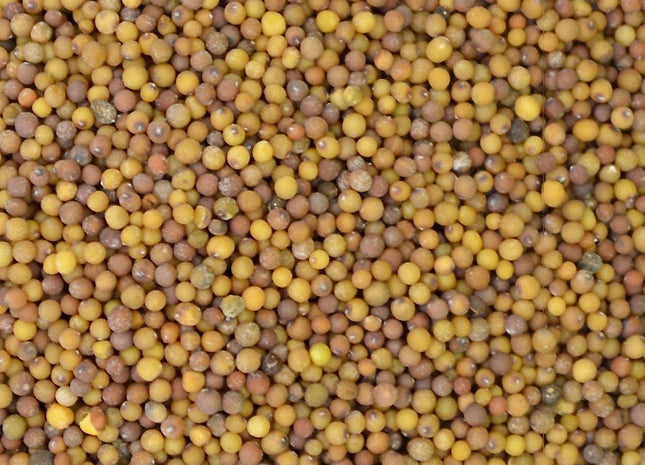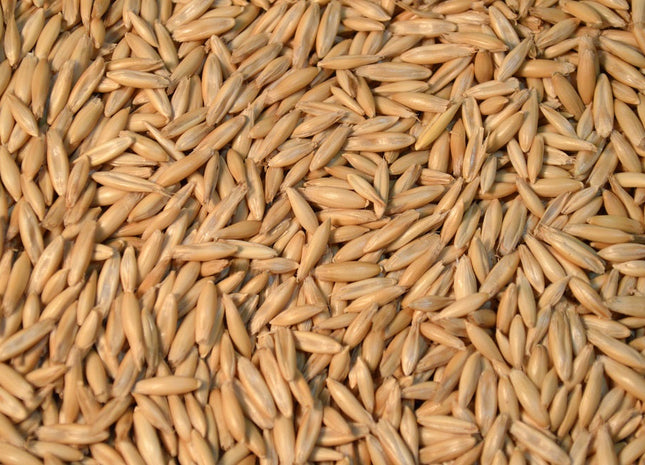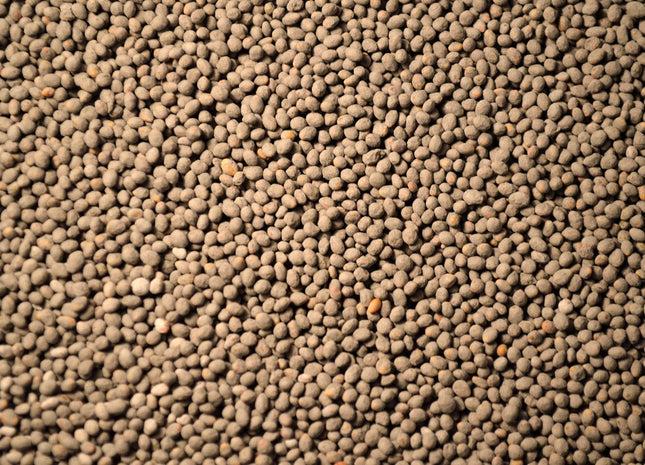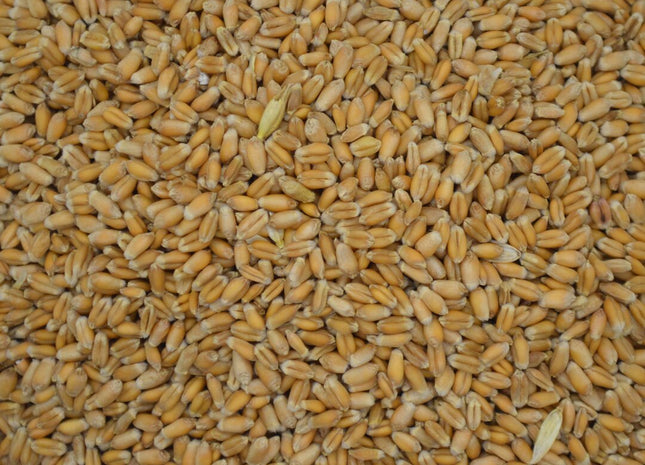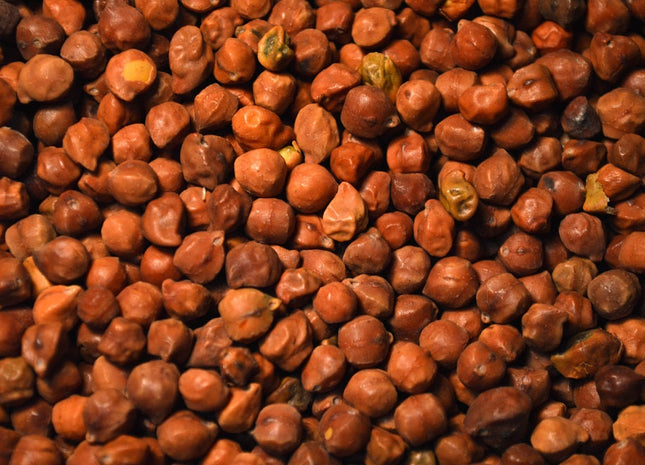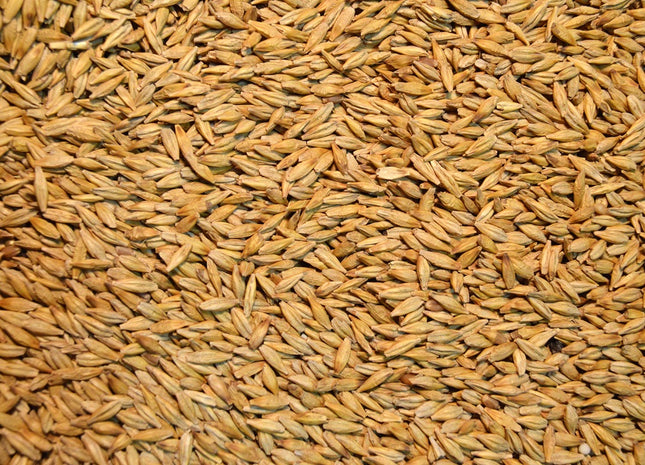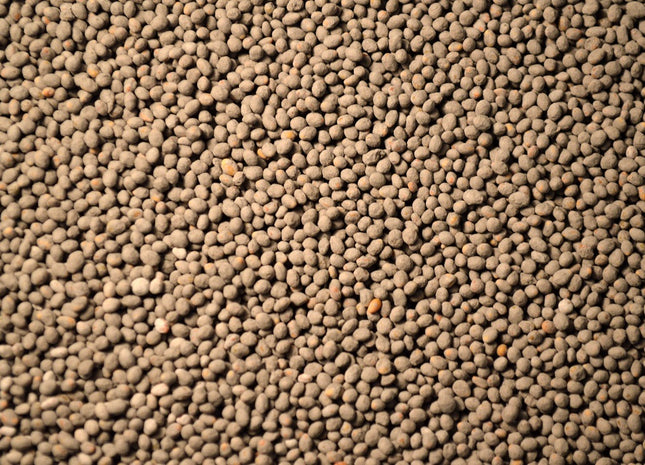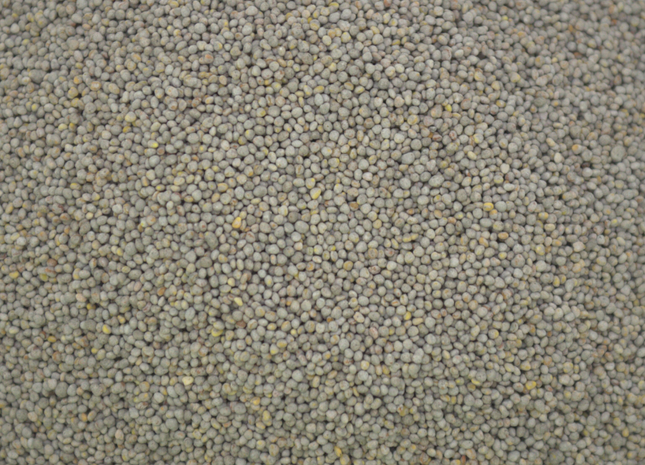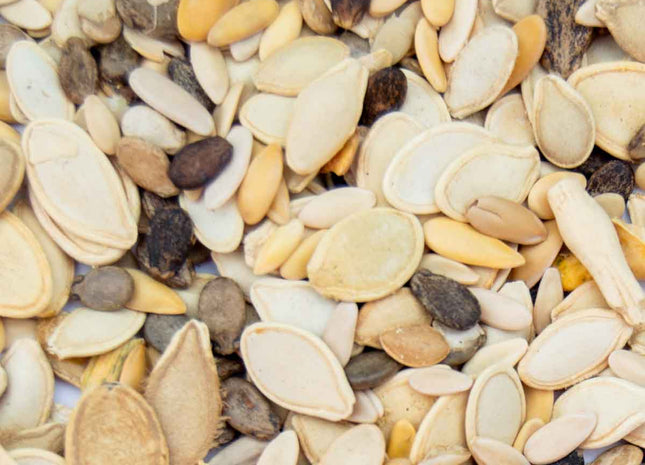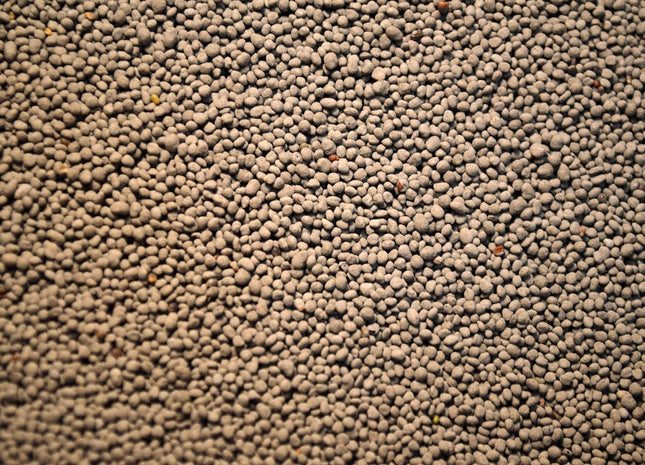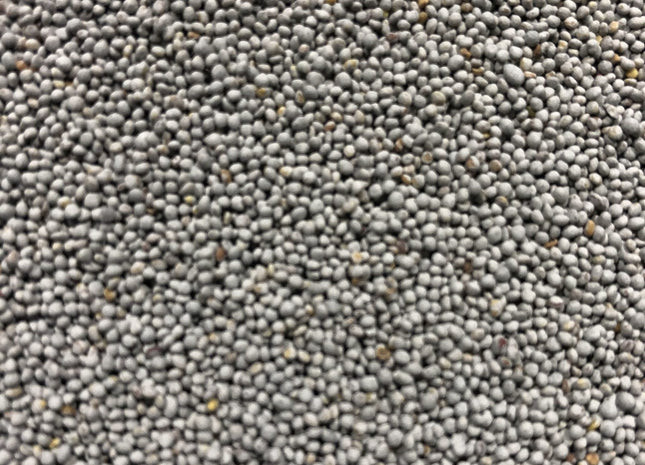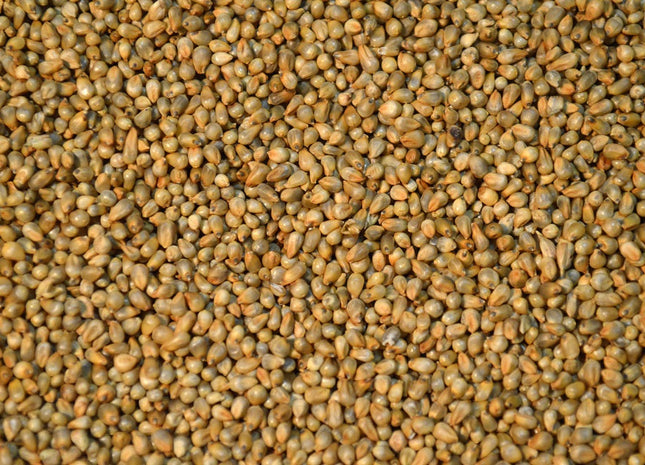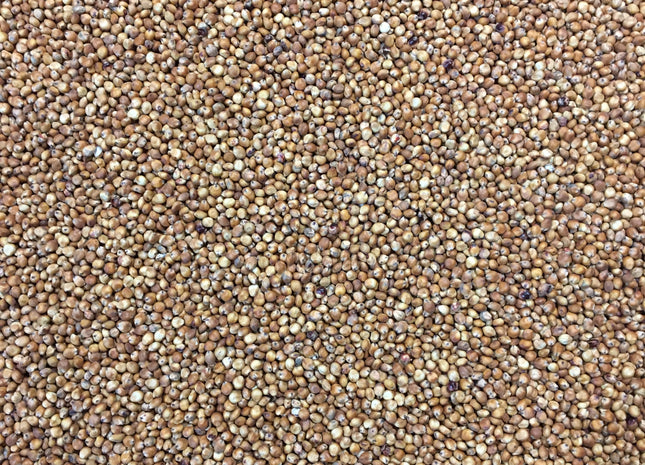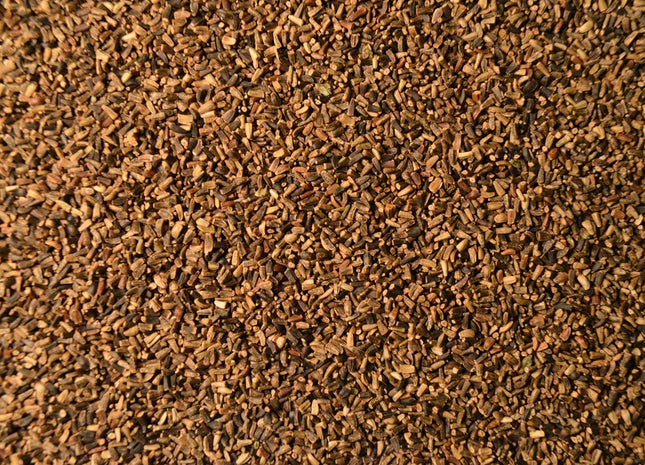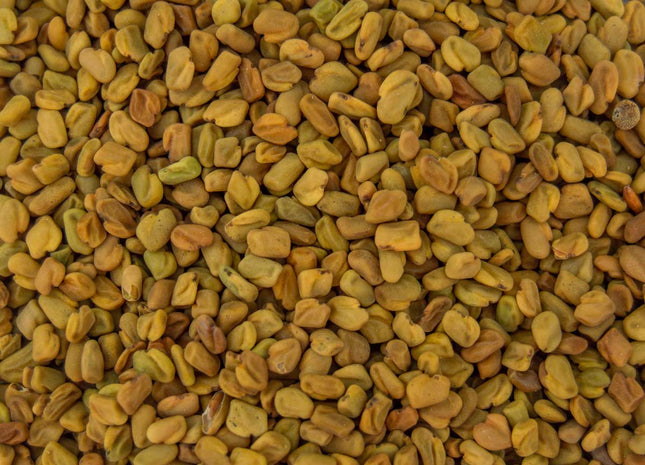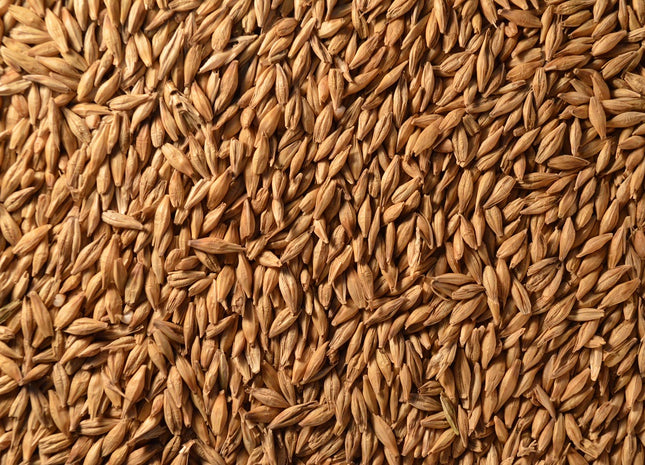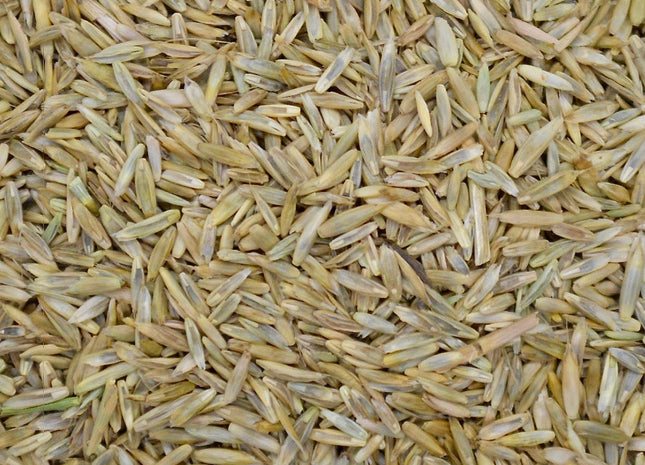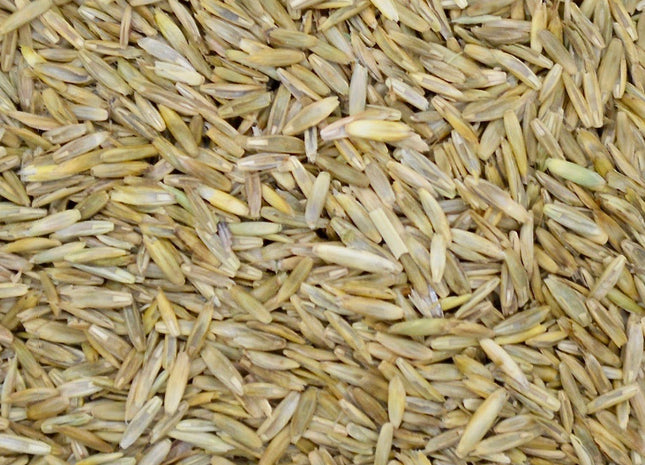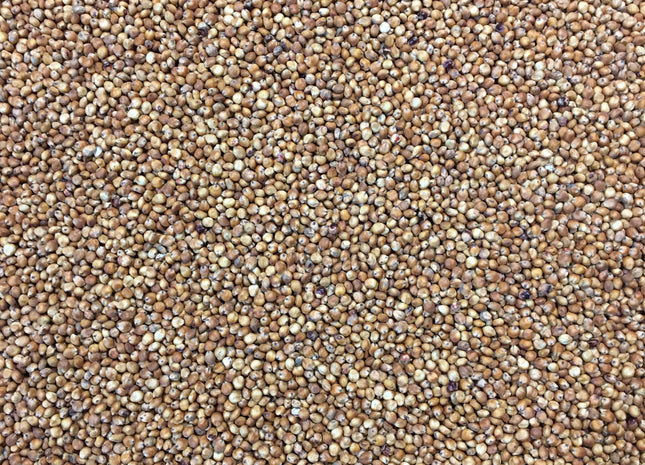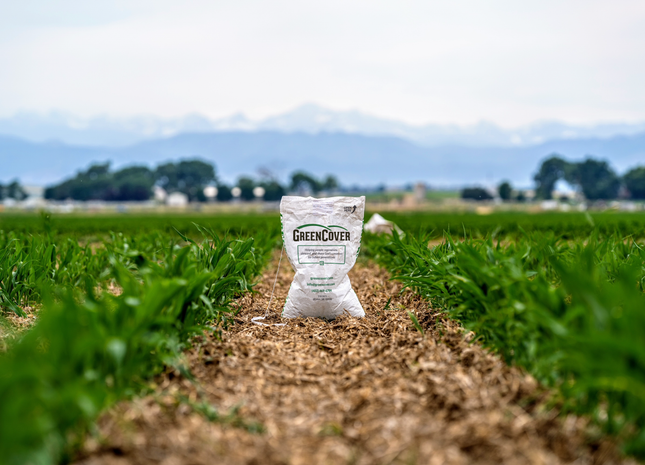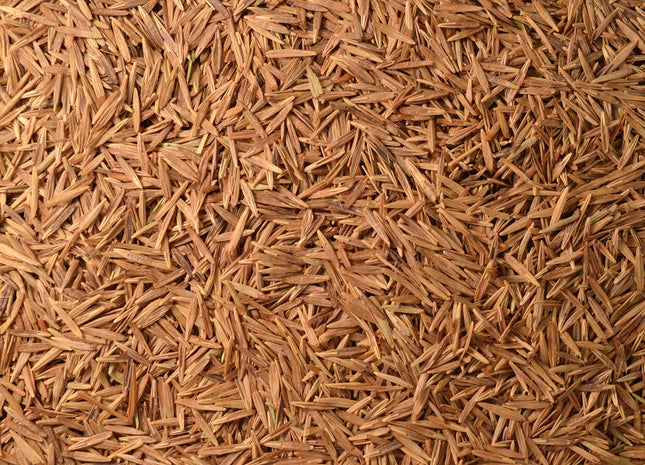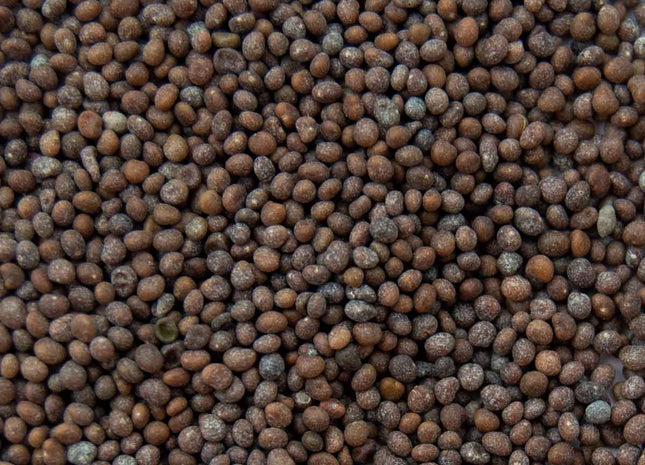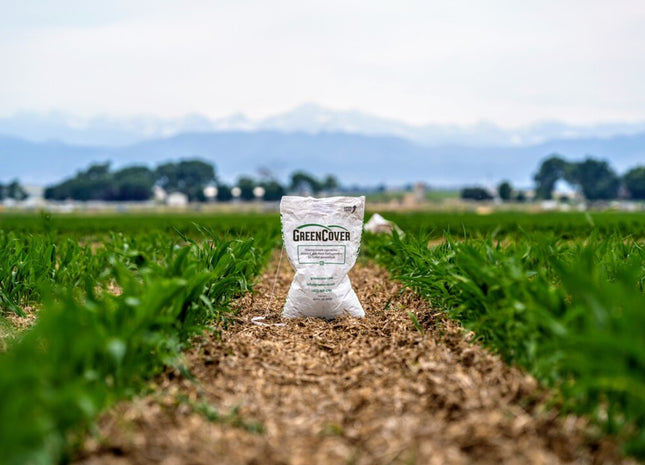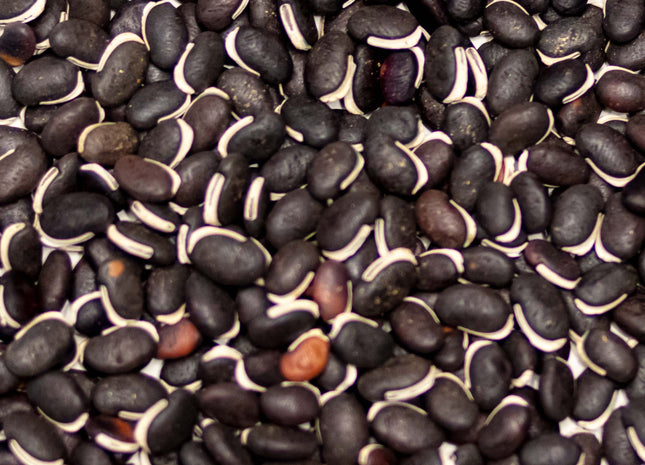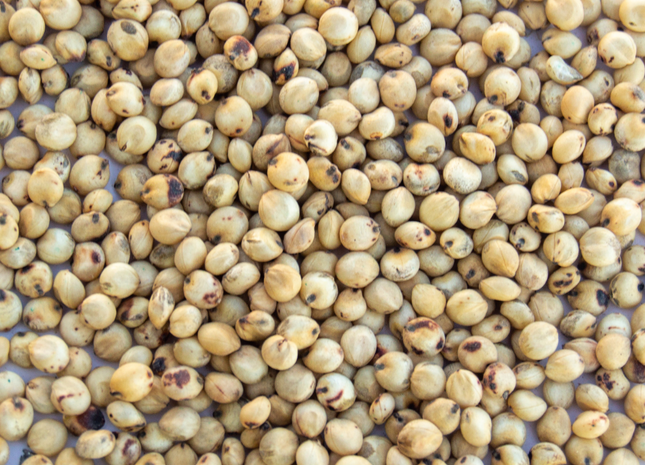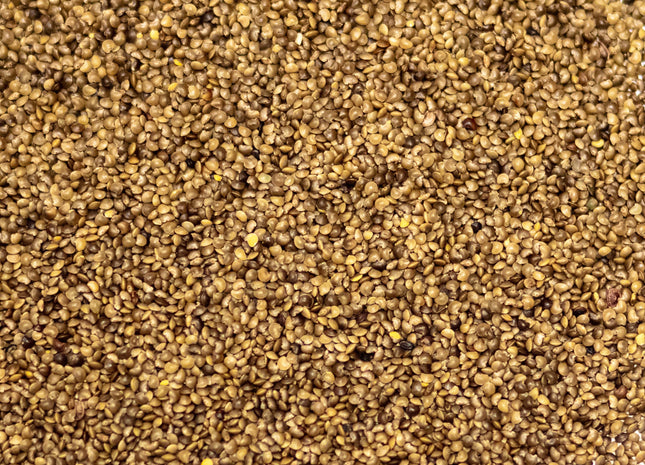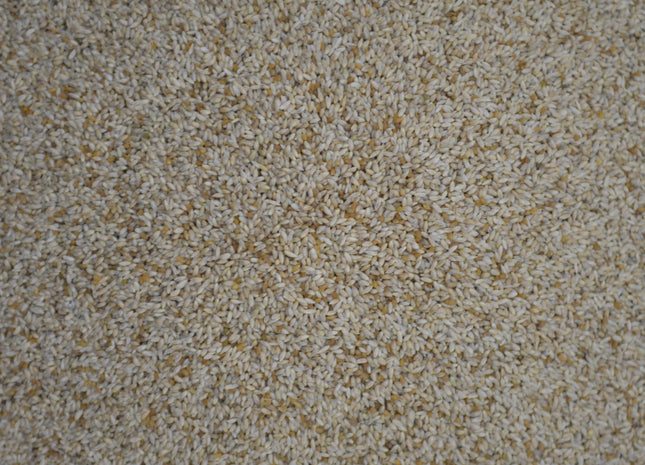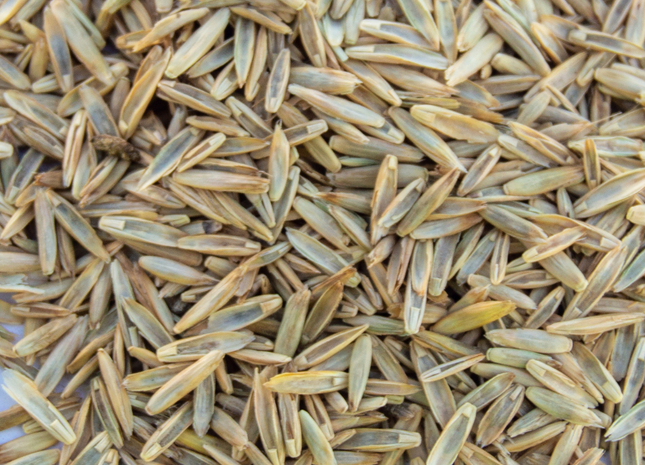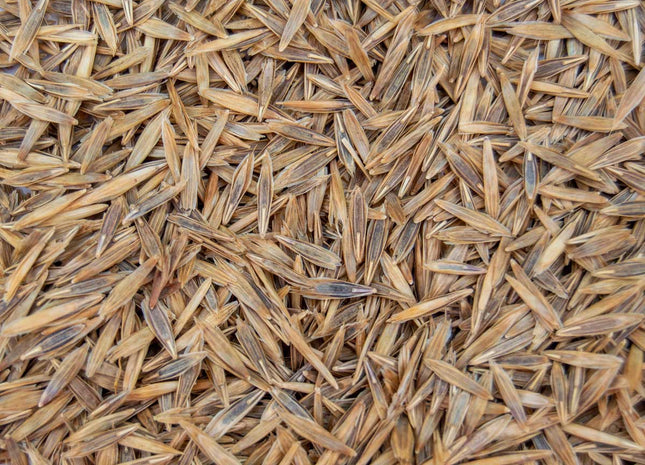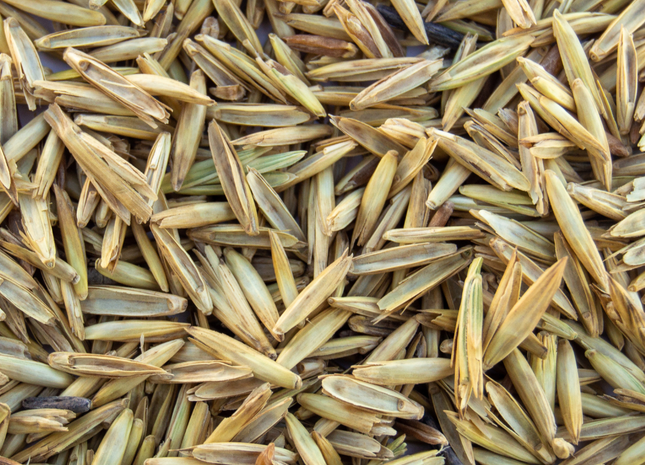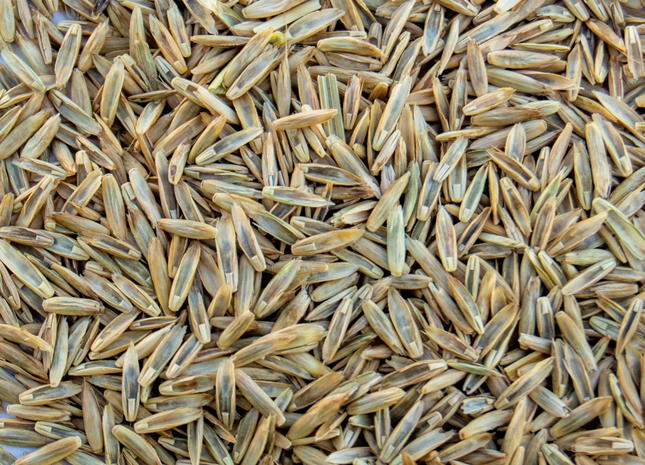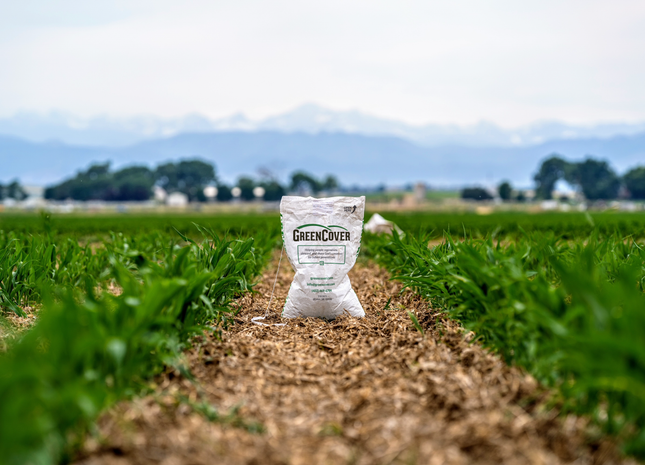Browse our extensive lineup of monoculture cover crop seeds.
Looking for a diverse cover crop mix? Browse Pre-Made Mixes or Food Plots.
Single Species Seed

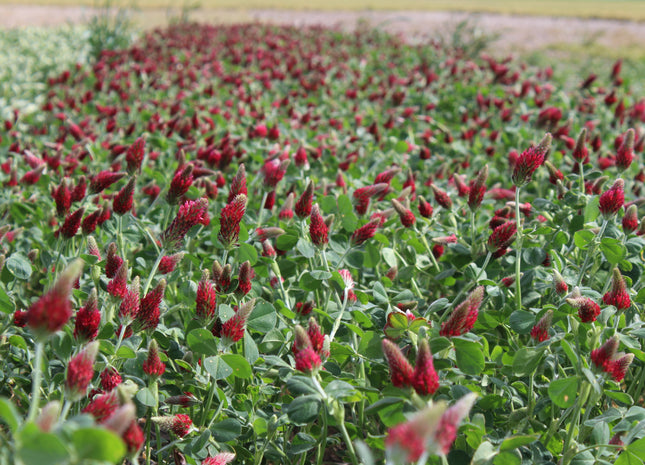
Crimson Clover (Dixie) - OMRI Inoculated
Crimson clover is one of the fastest growing, fastest establishing clovers. Known for its beautiful, deep red, cone shaped bloom, crimson clover is one of the most aesthetically pleasing cover crops and a popular choice for pollinator insects. For a more cold tolerant and higher biomass version, consider Kentucky Pride crimson clover.
from $1.26 per lb

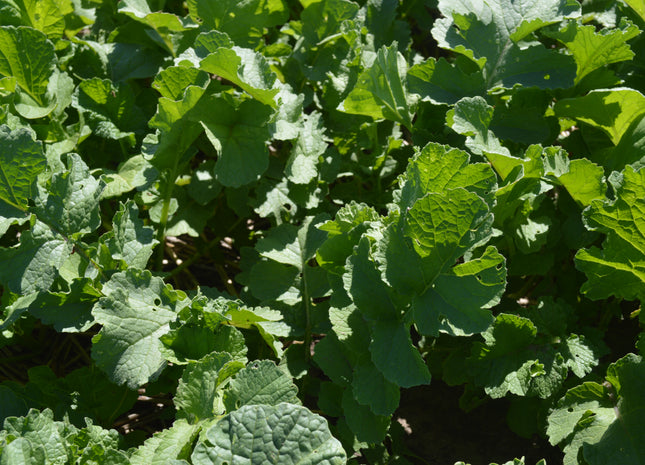
Forage Collards (Impact)
Impact forage collards are one of the best grazing brassicas on the market. The large, smooth leaves are very palatable and our testing shows that these collards have the highest protein content in the brassica family. Collards can withstand some of the widest ranges of weather, from hot and dry in the summer, to temperatures down to the low single digits in the winter.
from $2.28 per lb

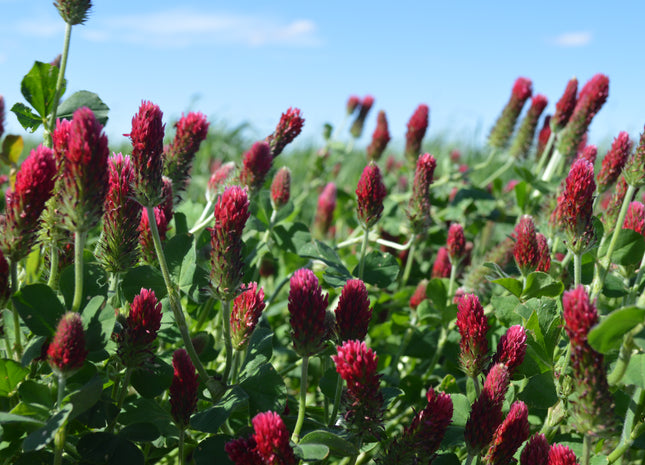
Crimson Clover (Kentucky Pride) - OMRI Inoculated
Kentucky Pride is an improved variety of crimson clover selected for more cold tolerance and more production (taller, deeper roots, more basal leaves and more tillering) than varieties like Dixie. Kentucky Pride crimson clover is a very fast establishing clover.
from $1.36 per lb

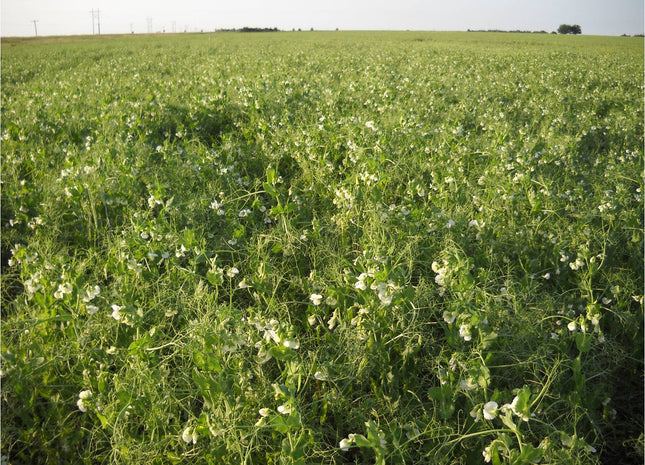
Spring Forage Pea (4010 Non-GMO)
Spring peas are one of the fastest growing spring legumes. Planted in spring after the harshest winter cold has passed, spring peas will tolerate some light freezing. Peas are commonly planted with oats as a high quality spring feed either for hay or grazing, or even a green manure. Peas work well in a mix as they will climb other plants to access sunlight. These legumes will also contribute to nitrogen fixing.
from $0.55 per lb

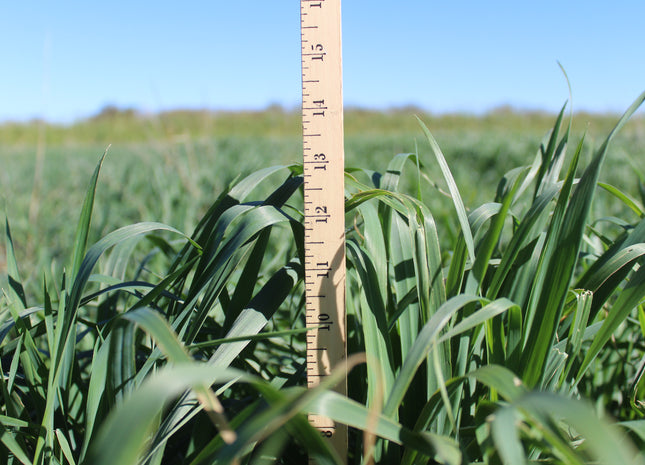
Black Oats (Cosaque)
Cosaque black oats offer several advantages over traditional oats, including superior nutritional value, digestibility, palatability, and a robust tillering capacity. They exhibit forage yields comparable to cereal rye and demonstrate good winter hardiness, often serving as a winter annual crop in southern regions. Notably, these oats thrive even in low-quality soils, contributing to soil restoration and enrichment due to their exceptional root system. A great fall grazing option across the U.S. and a great overwintering grass as you get south of Interstate-70.
from $0.32 per lb
- Out of Stock

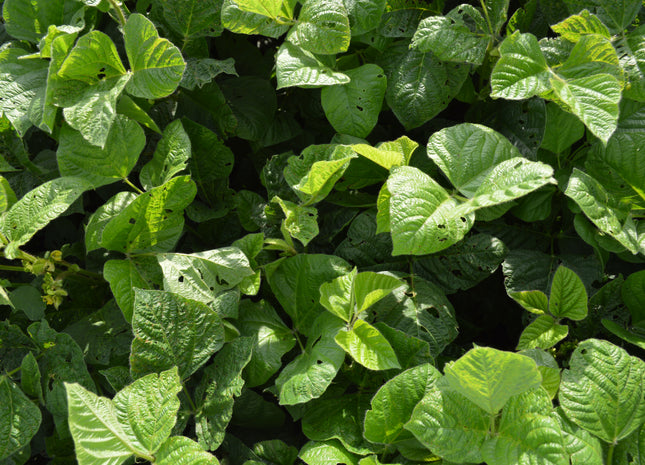
Mung Beans
Mung beans are a warm-season legume known for their remarkable heat tolerance and drought resistance. They exhibit rapid growth, maturing in just 65 days. One advantage of mung beans over cowpeas is that their seed pods remain intact, unlike cowpeas, making them an excellent source of late-fall protein for grazing livestock or wildlife. However, it's important to note that mung beans are highly susceptible to cold weather and require a minimum of 60 frost-free days to ensure successful growth. They can be used for both hay production and grazing and are compatible with peanut inoculant. Mung beans typically reach a height of around 3 feet and have a low to medium water usage. Their strengths lie in nitrogen fixation, forage production, and hay production.
from $1.36 per lb

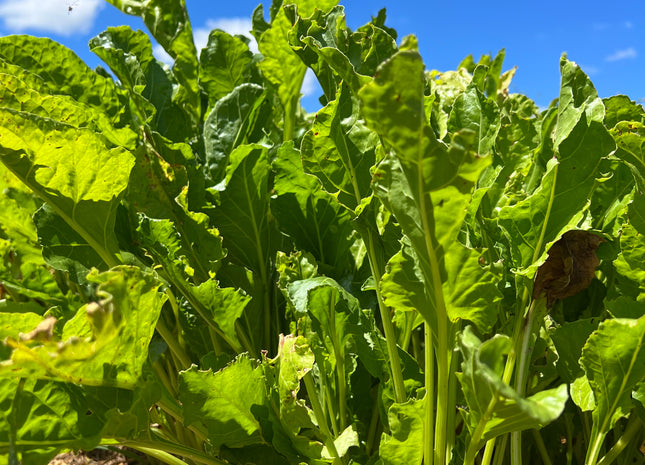
Sugar Beets Non-GMO
Sugar beets, a versatile broadleaf plant, bring a deep taproot and ample frost resistance to your cover crop arsenal. Their robust taproots can penetrate stubborn hardpans, with the majority of root growth hidden beneath the surface. These carbohydrate packed plants are a preferred choice for both wildlife and livestock. When grazed early, they display remarkable regrowth potential.
from $4.05 per lb

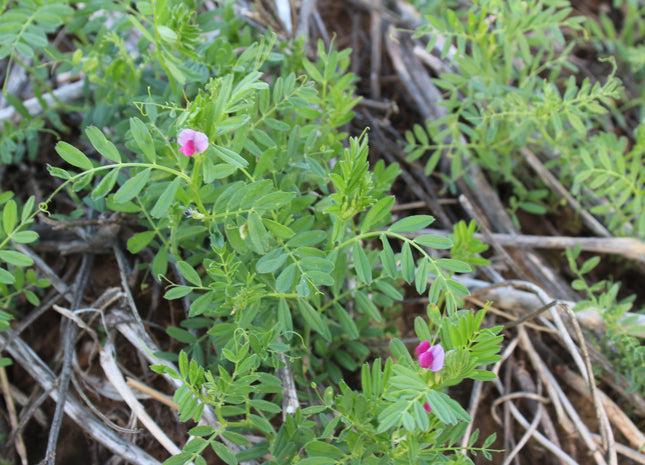
Common Vetch
Common vetch is a valuable cover crop widely used in the industry. As a leguminous plant, it provides nitrogen fixation, improving soil fertility. The extensive root system prevents erosion and helps control weeds. It enhances soil quality by adding organic matter, supports crop rotation systems, and provides early-season ground cover. Additionally, it can serve as a habitat for wildlife and, in some cases, offer forage for livestock. Common vetch's cold tolerance makes it suitable for various climates, but it is not nearly as cold tolerant as hairy vetch.
from $1.75 per lb

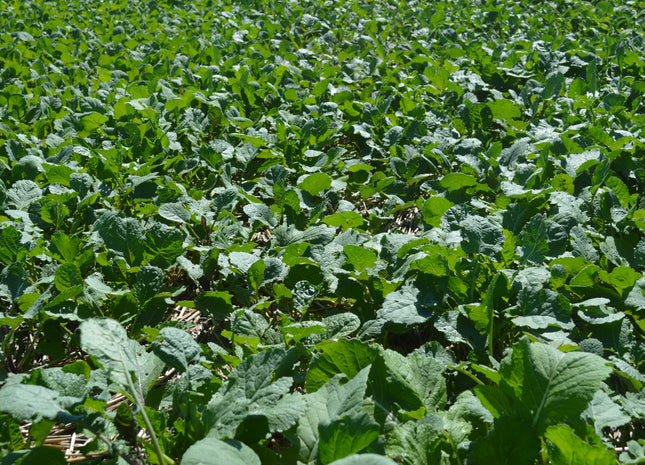
African Cabbage
African cabbage, a robust and rapidly growing brassica, thrives in a variety of warm season mixes, which makes it an intriguing option for interseeding into corn mixes. What sets it apart is its unique ability to stand tall and keep its leaves even in the face of cold weather, making it an exceptional choice for a snow-catching cover crop. Its enduring residue and strong root system enable captured snow to seep into the soil, enriching the moisture content in your land.
from $2.38 per lb

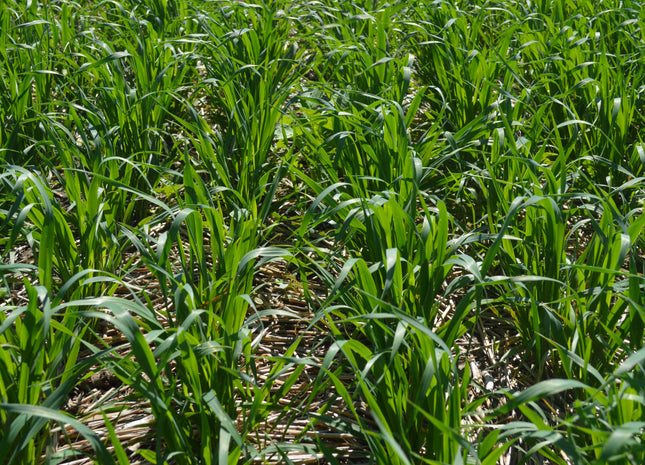
Spring Oats (Rushmore)
Spring oats are an excellent choice for quick ground cover in the spring or fall. Rapid growth aids in stabilizing disturbed or bare soil from environmental conditions. Spring oats make a great addition to any spring grazing or forage mix providing ample tonnage for your livestock. Oats can be easily chemically terminated and fall plantings commonly winterkill. Residue from oats suppress winter annuals and protect the soil throughout the winter and will decompose rapidly in the spring. Allelopathic chemicals released by the decomposing residue suppress weed germination for a few weeks. The high quality oat forage is more palatable than rye or wheat. Also, oat is less prone to insect problems than either wheat or barley.
from $0.32 per lb

Berseem Clover (Balady) - OMRI Inoculated
Berseem clover produces a non-bloating, high quality forage, that's more palatable than alfalfa. Berseem forage has been observed to maintain a CP content of 28-30% throughout harvesting regiments, which is slightly higher than crimson clover or alfalfa. Berseem clover has low water requirements and can provide strong biomass recovery after being mowed. A rapidly, consistent stand can be achieved because germination can occur in just 7 days and minimal hard seed counts. This clover produces flowers which are self-sterile so reseeding is not a concern. These flowers do provide a great pollen source, which is highly sought after by honeybees. Berseem can be controlled easily with glyphosate or when planted in colder regions will winterkill. With good shade tolerance, this species can be utilized for interseeding into crop systems or forage mixtures.
from $2.35 per lb

Winter Wheat (GA Gore Soft Red) - Beardless
The soft red winter wheat, an awnless variety, stands at a medium height with its moderate-strength straw. Its resistance to diseases and pests makes it a nice option as a winter cover crop for grazing, weed suppression, and erosion control.
from $0.27 per lb

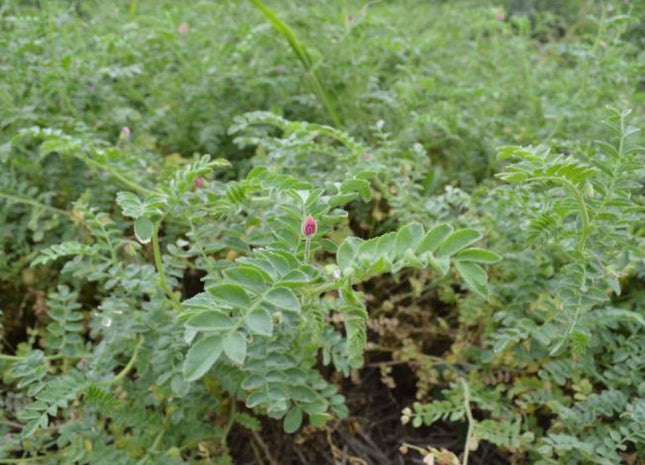
Chickpeas (Desi)
As the most heat tolerant of the cool season legumes, chickpeas offer a versatility that can be used in both warm and cool season mixes. Though not a great biomass producer, chickpeas are very drought tolerant and can help cover the ground in the midst of a summer drought. This taprooted plant can be used with grasses to add diversity and help break up compaction. As a legume, chickpeas will also fix nitrogen into the soil. Desi chickpeas have a smaller seed size so they blend well in a cover crop mix.
from $0.80 per lb

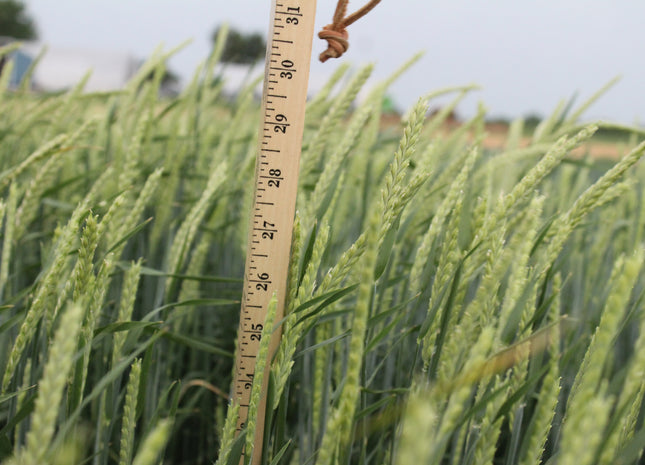
Spring Forage Barley (Lavina) - Beardless
Barley has relatively low water usage compared to other cover crop species, especially during earlier growth stages. Under poor fertility conditions, barley would be a good choice and can help render P & K available for your next crop. Barley provides a good feed quality grain that can be harvested 2-3 weeks earlier than wheat which then allows your double crop/cover to be planted sooner.
from $0.32 per lb

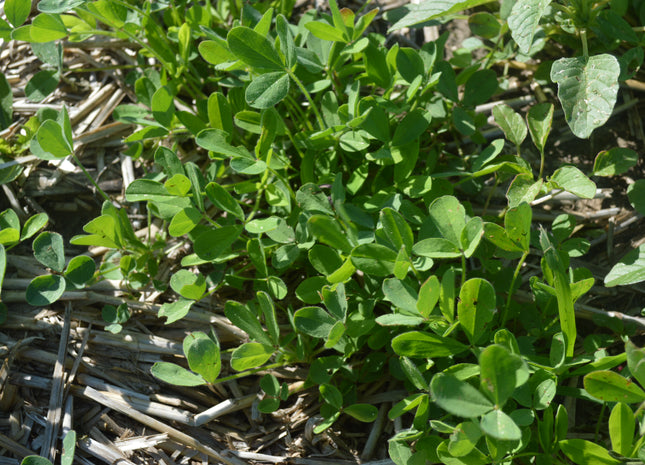
Berseem Clover (Frosty) - OMRI Inoculated
Berseem clover is a Mediterranean type that is salt tolerant, nitrogen fixing, and does well on light textured, sandy soils. Compared to other varieties of berseem clover, Frosty is later maturing, more cold tolerant, more productive, and has greater nutritional value. Frosty berseem clover can be overseeded into thinning stands of alfalfa as it looks very similar (before it blooms white) and it has excellent regrowth after cutting. For more information on Frosty berseem clover visit https://frostyclover.com.
from $3.85 per lb

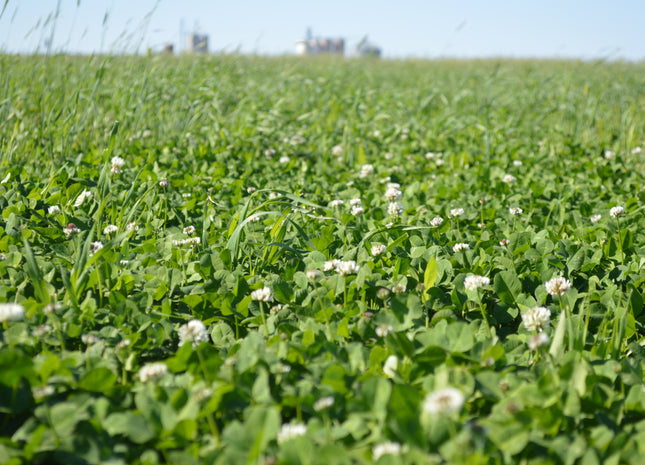
White Clover (Stamina Intermediate) - OMRI Inoculated
White Clover is an excellent choice for a perennial clover. The Stamina variety was developed to be more heat and drought tolerant than most other white clovers. Being a legume this plant can cause bloat, but rarely when it is in a mix with grasses. White clover is also a great choice for areas that have saturated soils.
from $6.05 per lb

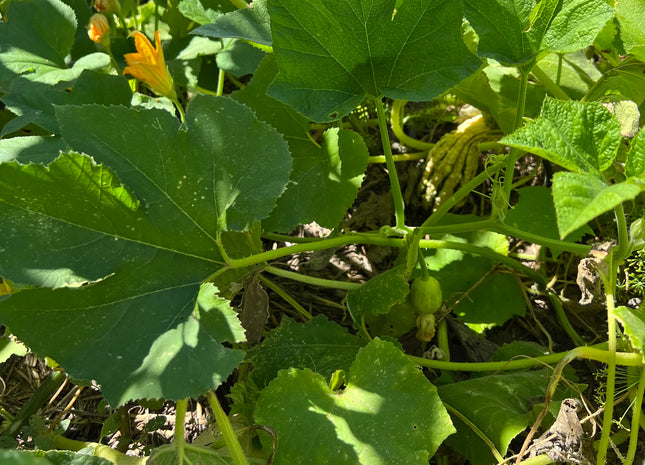
Cucurbit Blend
The cucurbit plant family includes plants like squash, pumpkins, and gourds. These warm season annual broadleaves are known for being viny which can be a very desirable trait to have in a cover crop blend. In the case of a row skip when planting or a troublesome soil spot in the field, nearby cucurbits will vine out to soak up the sun where nothing else is growing. These cucurbit fruits can also add nutrition to winter stockpile forage mixes as the cold weather softens their outsides and cattle learn to eat the seeds and fruit flesh.
from $3.05 per lb
- Out of Stock

Alsike Clover - OMRI Inoculated
Alsike clover is a perennial that thrives in low lying ground. For pastures or meadows with poor drainage and occasional water logging, this would be the first clover to try. Growing 2-4 feet tall with pink flowers, this adds a pollinator attracting and nitrogen fixing species to perennial pasture mixes. It should be considered that alsike clover can be toxic to horses.
from $4.05 per lb

Dutch White Clover - OMRI Exceed Pre-Coat Inoculated
Dutch white clover, a true perennial, is the most widely-grown clover in the United States. White clover is widely adapted and can often live for several years. It can be found growing naturally from the Arctic Circle to all parts of the temperate regions of the world. It is quite tolerant of traffic and a natural spreader. This grazing ability is achieved by its high seed production (reseeding) and an extensive network of creeping stems called stolons. Dutch white clover is extremely tolerant of heavy grazing and shade.
from $4.40 per lb

Pearl Millet (Exceed BMR)
Pearl millet is among the best grazing or haying millet varieties. Exceed BMR Pearl Millet also offers the BMR trait allowing the animal to better digest the plant for optimal nutritional efficiency. Pearl millet is very adaptable to its growing environment with great tillering capacity, allowing for more forage and better ground coverage with less seed.
from $2.40 per lb

Sorghum Sudan (Endurance Aphid Tolerant BMR Dwarf)
Endurance Aphid Tolerant BMR Dwarf sorghum sudan is bred for short stature and high digestibility. Don't mistake shorter stature for less biomass, though. The dwarf trait simply shortens the length in between the leaves, called the internode length, while still growing the same number of leaves. The shorter plant makes it easier for livestock to graze and utilize efficiently.
from $1.65 per lb

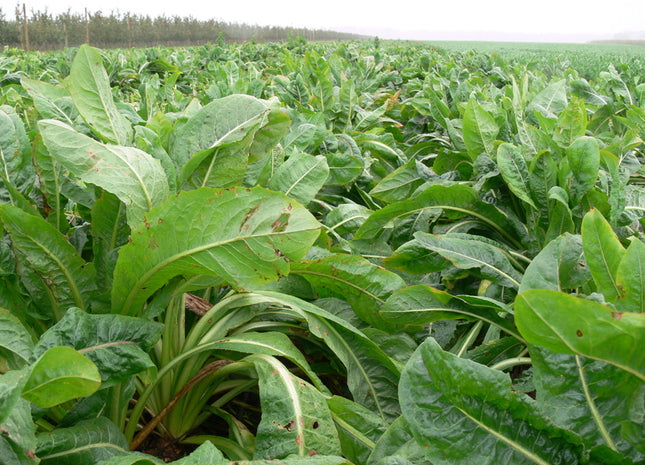
Chicory (Endure)
Chicory is a deep rooted forb that goes great in many perennial pasture mixes. Because of its ability to reach many minerals in the soil, this is a highly nutritious grazing plant especially before it blooms with blue flowers. Chicory has natural deworming abilities adding to its benefits in perennial grazing systems where it should be seeded at a low rate for cattle but can be increased for sheep or other small ruminants.
from $5.00 per lb

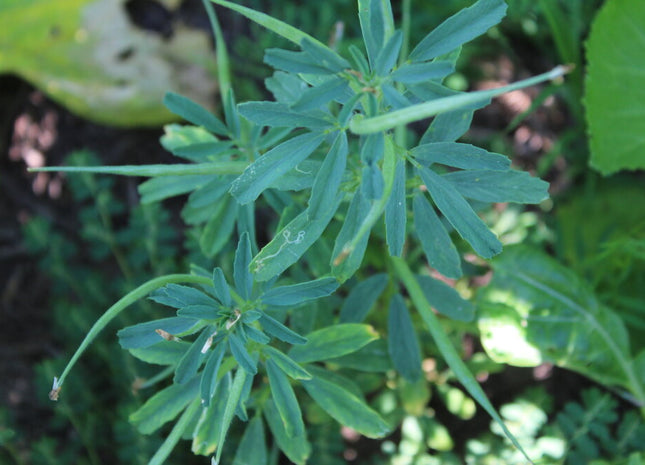
Fenugreek - OMRI Inoculated
The name Fenugreek literally means "Greek Hay" and is used across the globe as a highly productive forage for livestock. Fenugreek is commonly used in pastures and haying situations due to it's livestock health benefits including promoting reproductive and digestive health. In fact, some of the top soil scientists in the world recommend adding fenugreek to every livestock diet. This plant looks similar to clover with flowers resembling common peas. As a warm season plant, fenugreek loves sunlight and heat and makes a great addition to any warm season mix for its grazing and nitrogen-fixing characteristics. *Please note this is NOT food grade seed and is NOT recommended for human consumption.
from $1.89 per lb

Winter Barley (P919) - Beardless
Barley has relatively low water usage compared to other cover crop species, especially during earlier growth stages. Under poor fertility conditions, barley would be a good choice and can help render P & K available for your next crop. Barley provides a good feed-quality grain that can be harvested 2-3 weeks earlier than wheat, which then allows your double crop/cover to be planted sooner. Compared to oats, barley produces more tillers and vegetation that will remain erect longer after termination. Carbohydrates known as monosaccharides are excreted through the roots to feed soil biology and barley has been observed to release more monosaccharides than even alfalfa.
from $0.32 per lb

Annual Ryegrass (Centurion) - Diploid
Extending the grazing season while protecting and building the soil is a great benefit of this species. The biomass N content can range from 1.3-2.4% and varies depending on the amount of residual N left from the previous crop. Reports of annual ryegrass having the potential to scavenge up to 200 lbs of residual N/A/yr have been recorded. Ryegrass can be very successfully broadcast into established row crops. Winter killed ryegrass can still provide weed suppression, soil protection and trap residual N until spring. Ryegrass attracts very few pest insects that could pester the next crop. With lower needed seeding rates per acre you will spend less on freight and your applicator can remain in the drill or in the air longer. Annual ryegrass has deep roots, but when considering it for more northern areas, it must be established prior to hard freezing in order to have the best chance of winter survival.
from $1.00 per lb

Annual Ryegrass (Ranahan) - Tetraploid
Annual ryegrass stands out as a captivating and remarkable grass within the realm of cover crops. It offers a plethora of advantages, including winter grazing, impressive yields, and an often underrated impact on breaking through compacted soils. Notably, tetraploid ryegrass boasts rapid establishment, extended and broader leaves, but that comes with a reduced cold tolerance when compared to diploid annual ryegrass.
from $1.00 per lb

Sorghum Sudan (SolarMaxx PPS)
SolarMaxx is a photoperiod sensitive sorghum sudangrass designed to be used in both diverse cover crop mixes as well as for forage production. The photoperiod sensitivity is an increased benefit to anyone who wants to have a full season plant with multi harvest possibilities. Photoperiod sensitivity means that the plant will not go reproductive until the daytime hours get to 12 hours and 20 minutes. The flexibility of these genetics gives the producer time to either react to making a harvest, or allow time for moisture to come and allow the plant to grow again. Since seedhead emergence is so late the threat of volunteer seed is little to none.
from $1.45 per lb

Sorghum Sudan (Cattle Cover BMR MS)
Cattle Cover offers game-changing combination of agronomics and yield. High digestibility, great palatability, and strong disease package for overall good producibility. First-in-class sugarcane aphid tolerance. Agronomics and maturity makes it a strong hybrid for hay production and grazing. Being a male sterile it can be used where you do not want the possibility of volunteering.
from $1.60 per lb

Meadow Brome (Champaign)
Meadow brome is a bunchgrass resembling smooth brome but behaving more like orchard grass, only with more drought tolerance. Like orchard grass, it has good regrowth and is one of the better grasses for stockpiling in winter, though it is still distinctly inferior to fescue for that purpose.
from $4.05 per lb

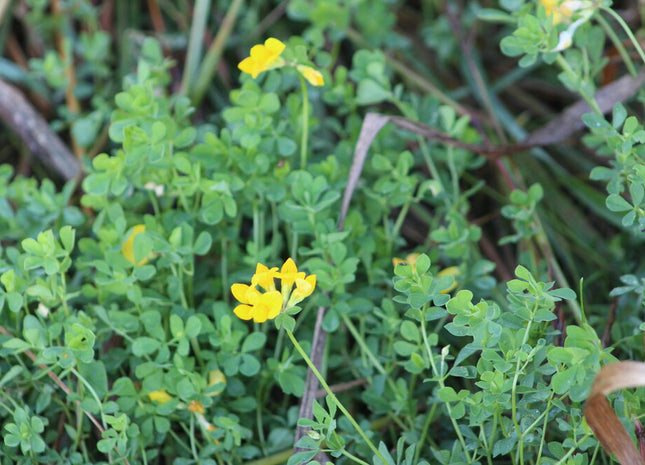
Birdsfoot Trefoil (VNS) - OMRI Inoculated
Birdsfoot Trefoil is a long lived perennial legume. This plant contains high levels of tannins, making it an excellent addition to pastures for grazing as there is no bloat risk that is common with other pasture legumes. The tannins also help neutralize the impact of grazing endophyte infected fescue. Birdsfoot Trefoil is not as productive when compared to alfalfa and is most commonly used in mixtures with other plants.
from $7.40 per lb

Aberlasting Kura/White Clover - OMRI Inoculated
Aberlasting clover is a cross between caucasian and white clover. The excellent and high quality forage from the white clover mixed with the persistence under extreme stress conditions from the caucasian clover make a very adaptable and hardy clover.
from $9.83 per lb

Lab Lab (Highworth)
Lab lab is a highly palatable warm season legume native to Africa and Asia. It loves hot and dry conditions and is generally used as forage for livestock or in a food plot situation. Lab lab looks similar to a soybean plant, but generally grows taller and can be quite dense due to it's vining growth pattern.
from $2.35 per lb
- Out of Stock

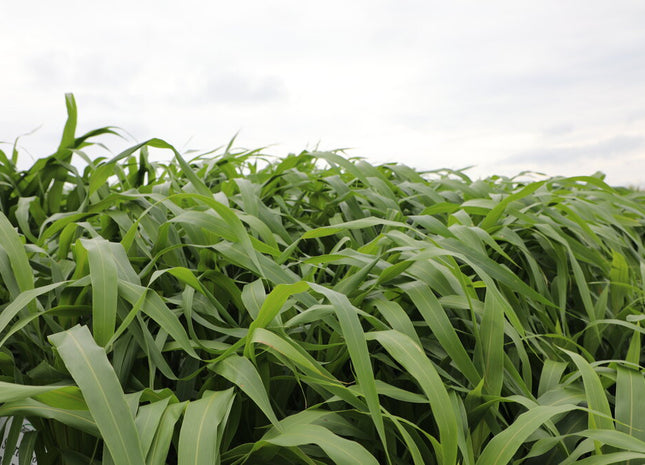
Sorghum Sudan (Short King BMR Dwarf PPS)
Short King BMR Dwarf PPS Hybrid Sorghum Sudan is an excellent option for people south of I-70 and in dry climates due to its superior drought tolerance and aphid resistance. This sorghum sudan can be used for hay production or grazing. It will maintain dwarf stature until the photoperiod sensitivity is triggered, usually mid-September.
from $1.75 per lb

Aeschynomene (American Joint Vetch)
Aeschynomene, or American joint vetch, is a highly palatable warm season annual legume. Also known as deer vetch, joint vetch is particularly popular among food plot enthusiasts as it attracts wildlife such as whitetail, wild turkey, and bobwhite quail. American joint vetch not only provides excellent nutrition for large animals, but also excellent habitat for game birds. American joint vetch is an excellent way to add diversity to a mix and increase nitrogen fixing capabilities. This plant thrives in acidic, low fertility and wet soils and exhibits natural resistance to pest and disease.
from $7.55 per lb

Pearl Millet (Green Giant Hybrid)
Green Giant Hybrid Pearl Millet is among the best grazing or haying millet varieties. Pearl millet is very adaptable to its growing environment with great tillering ability. This allows for more forage and better ground coverage with less seed.
from $1.99 per lb

Turnip (Twister Hybrid)
Twister is a rapeseed x turnip hybrid making it an excellent cover and forage crop. This is a great addition to any spring, summer or fall grazing mix. This hybrid turnip will produce a highly palatable leafy green top sought after by livestock and wildlife alike. The foliage will quickly cycle nutrients if left to decompose.
from $2.50 per lb
- Out of Stock

Timothy Grass (Carson)
Timothy grass has excellent palatability while vegetative. It is an excellent species to use for hay, especially for horses. Though many varieties lack drought, heat, and grazing tolerance, Carson timothy is an improved variety and can be added to any cool season pasture.
from $3.20 per lb
- Out of Stock

Festulolium (SugarCrest)
SugarCrest Festulolium is a perennial ryegrass crossed with meadow fescue. This grass exhibits superior forage quality, winter-hardiness, drought tolerance, and excellent seedling vigor. This is a great option for anyone looking for a high yielding, high quality forage. Learn more about SugarCrest Festulolium here.
from $7.10 per lb

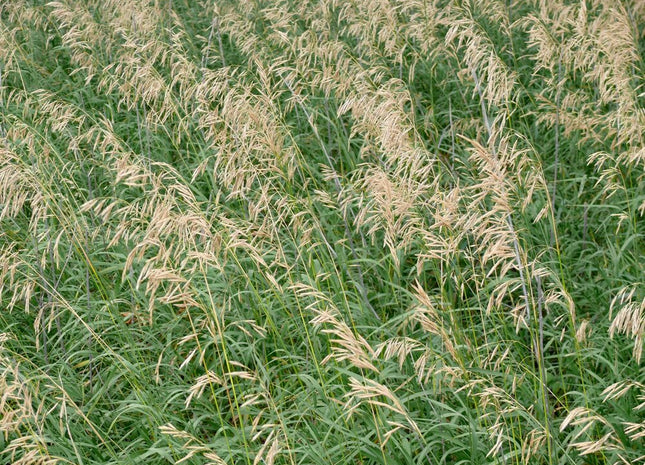
Smooth Bromegrass
Smooth brome is a productive, cool season grass with good drought tolerance. It has decent palatability, though it is best grazed in a vegetative state. Smooth bromegrass is very aggressive, establishing quickly for a perennial and spreads through rhizomes, making a dense sod. This means it is great for waterways and holding soil on slopes but it can also dominate and even choke out other perennial species. For that reason, it should be used sparingly in pasture mixes, relying on other species which are more palatable and offer better regrowth, but using smooth brome to fill in.
from $3.60 per lb


Organic Jerry Spring Oats
Note: This product is certified organic. Spring oats are an excellent choice for quick ground cover in the spring or fall. Rapid growth aids in stabilizing disturbed or bare soil from environmental conditions. Spring oats make a great addition to any spring grazing or forage mix providing ample tonnage for your livestock. Fall plantings commonly winterkill. Residue from oats suppress winter annuals and protect the soil throughout the winter and will decompose rapidly in the spring. Allelopathic chemicals released by the decomposing residue suppress weed germination for a few weeks. The high quality oat forage is more palatable than rye or wheat. Also, oat is less prone to insect problems than either wheat or barley.
from $0.45 per lb


Grazing Corn (Solargraze BMR)
Grazing Corn is a high quality warm season annual option which is especially useful in late summer as the nights begin to cool off. Corn will thrive with warm days and cool nights, whereas sorghum sudan prefers hot days and warm nights. Grazing corn is highly palatable though it does not have great regrowth. For this reason it is best for a late season planting where only one grazing event is planned. It will also provide a high carbon residue to help protect soil during the winter.
from $0.65 per lb

Intermediate Wheatgrass
Intermediate wheatgrass is probably the most productive of the western grasses, relatively equal to orchard grass, tall fescue, or smooth brome in yield potential, with much more drought tolerance. It is a strong bunchgrass and tends to lose quality upon maturity.
from $3.25 per lb

Spring Oats (Everleaf Falcon) - Certified
Everleaf Falcon spring oats are an improved variety of oats. Delayed heading and improved leaf density make this an excellent option for forage. These oats resist lodging, produce excellent tonnage, and provide high quality forage. The seeds are much darker than most oat varieties, maturing as a medium to dark brown seed. Everleaf Falcon oats should be used for grazing or any type of harvested forage.
from $0.35 per lb

Italian Ryegrass (Tetlia/Tetra Prime)
Italian ryegrass is an excellent option for grazing. This high quality forage withstands close grazing which allows for total forage utilization. Italian ryegrass is generally considered a biennial, so it remains vegetative in its first year of growth and will not produce seed until its second year of growth. The Tetra Prime variety has improved winter hardiness along with excellent drought tolerance.
from $1.90 per lb

Sorghum Sudan (506x51 BMR Dwarf)
506x51 is a brachytic dwarf BMR sorghum sudangrass with a longer maturity than standard sorghum sudan hybrids. 506x51 has high tillering capacity genetics that will help with filling in row spaces when planting at wider rows. This is also a benefit when grazing, as once the plant is consumed the plant will stool. The delayed maturity benefit to this variety also pairs it nicely with longer season cover mixes that could be stockpiled. The leaf to stem ratio is very attractive for a hay harvest as well.
from $1.55 per lb
- Out of Stock


Organic Crimson Clover
Note: This product is certified organic. Crimson Clover is one of the fastest growing, fastest establishing clovers. Known for its beautiful, deep red, cone shaped bloom, crimson clover is one of the most aesthetically pleasing cover crops and a popular choice for pollinator insects.
from $3.10 per lb


Organic 4010 Spring Forage Pea
Note: This products is certified organic. Spring peas are one of the fastest growing spring legumes. Planted in spring after the harshest winter cold has passed, spring peas will tolerate some light freezing. Peas are commonly planted with oats as a high quality spring feed either for hay or grazing or even a green manure.
from $0.80 per lb

Sorghum Sudan (Good Grazy BMR PPS)
This photoperiod sensitve sorghum sudan is an excellent option for many multi-cut grazing and haying situations. The BMR trait lends itself to excellent digestibility. Use this product in mixes are by itself. The PPS trait ensures that the sorghum sudan will not head out until mid-September.
from $1.75 per lb
- Out of Stock

Meadow Brome (Fleet)
Meadow brome is a bunchgrass resembling smooth brome but behaving more like orchard grass, only with more drought tolerance. Like orchard grass, it has good regrowth and is one of the better grasses for stockpiling in winter, though it is still distinctly inferior to fescue for that purpose.
from $4.05 per lb
- Out of Stock


Organic Rushmore Spring Oats (Certified)
Note: This product is certified organic. Spring oats are an excellent choice for quick ground cover in the spring or fall. Rapid growth aids in stabilizing disturbed or bare soil from environmental conditions. Spring oats make a great addition to any spring grazing or forage mix providing ample tonnage for your livestock. Oats can be easily chemically terminated and fall plantings commonly winterkill. Residue from oats suppress winter annuals and protect the soil throughout the winter and will decompose rapidly in the spring. Allelopathic chemicals released by the decomposing residue suppress weed germination for a few weeks. The high quality oat forage is more palatable than rye or wheat. Also, oat is less prone to insect problems than either wheat or barley.
from $0.50 per lb

Forage Sorghum (Sorgrow D120 BMR Brachytic Dwarf)
This Brachytic Dwarf Forage Sorghum brings a jump in yield potential. Excellent standability, top-notch quality feed and now featuring our Aphix SCA tolerance. This is a benchmark of all high-yielding forage sorghum products in the lineup. If you need a product to push the limits of yield and provide superb agronomics, this is the one to try.
from $2.30 per lb

